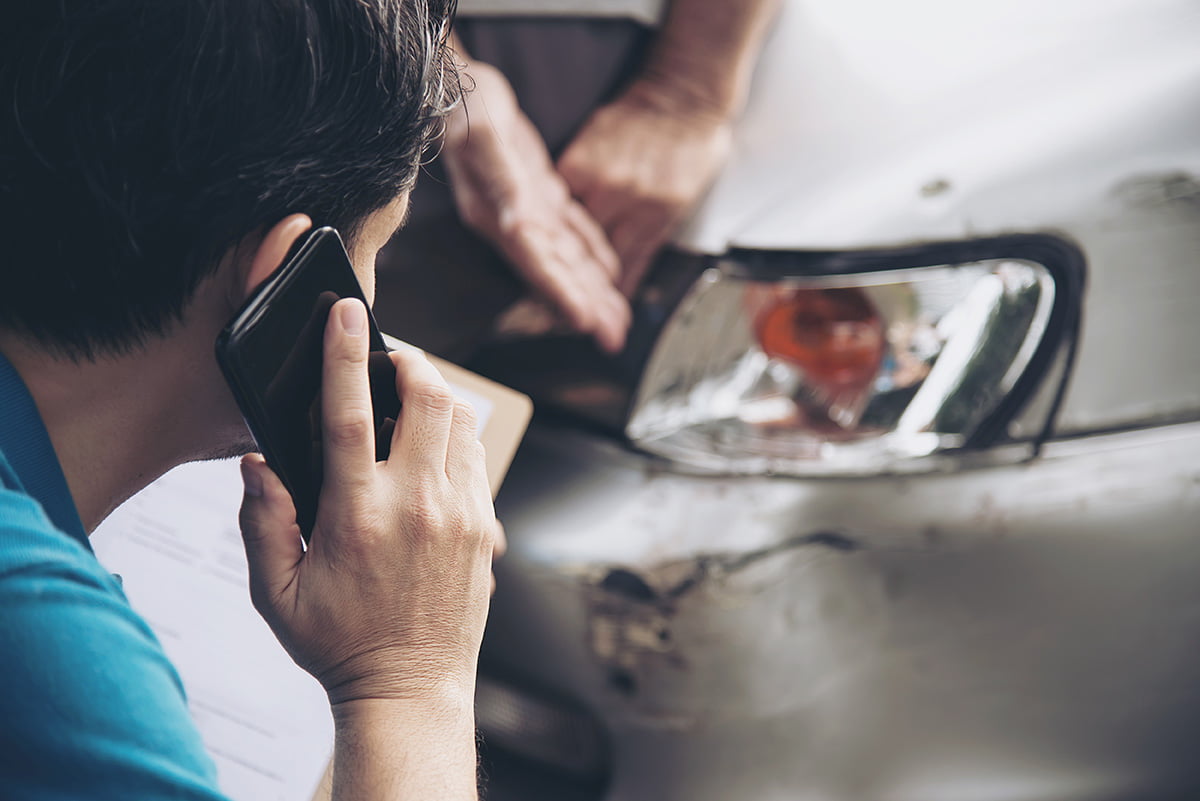1. Assess whether ambulance and/or police should be called
Assess whether it is appropriate to call the police, an ambulance, or both to the scene of the accident.
If anyone is seriously injured, call an ambulance immediately so the paramedics can assess the injury.
Section 130(1) of The Motor Vehicle Act RSNB 1973, requires that the driver of any vehicle involved in a motor vehicle accident report to the police any accident that results in: injury to any person, death to any person, or property damage to an extent of one thousand dollars.
Not only is calling the police often a legal requirement, but it is usually beneficial to have the police attend at the scene of the accident so that there is an objective record of how the accident happened.
2. Exchange information with other drivers and witnesses
Ensure that you have name, address, and motor vehicle insurance information of the other drivers. If possible, take a photo of the insurance card and the drivers license of the other drivers involved in the accident. This information will be necessary later for your insurance company, and your lawyer.
Get the name and phone number of any witnesses to the accident, including the passengers in other vehicles. We often have clients who talk to witnesses at the scene of the accident and fail to get their name and contact information. It is often very difficult or impossible to track these witnesses down later. These witnesses could have important information to corroborate how the accident happened.
Do not discuss the accident with anyone but the police. Avoid apologizing to anyone at the scene of the accident.
3. Take photos
Take photos: where the vehicles came to rest after the accident; any damage to the vehicles; and any marks or skid marks on the roadway. This information can be used to help corroborate how the accident happened and is important if an accident reconstruction report is needed.
4. Seek medical assessment
After the accident, individuals often have a rush of adrenaline, or may be in shock from the event. It is very easy in this situation to miss the cues your body is trying to send you. If there is any possibility you might have been injured in the accident, visit the closest hospital’s emergency room, a walk-in clinic, or your family physician. This will ensure any potential injuries are identified early and treated appropriately.
5. Call a lawyer
It is important to know your legal rights and what compensation might be available to you after a motor vehicle accident. A lawyer can walk you through what types of insurance benefits might be available to you and what your legal rights are. Do not speak to the insurers of the other motor vehicles involved in the collision before you have consulted with a lawyer.
6. Call your motor vehicle insurer
All motor vehicles in New Brunswick are required to carry standard form automobile policies of insurance. Most individuals have access to health and property damage benefits after being involved in an accident, regardless of who is at fault for the accident. A lawyer can explain to you what types of benefits are available and how to access those benefits. If you choose not to talk with a lawyer, it is still important to call your insurer after the accident, to report the accident and to discuss opening up a claim.


